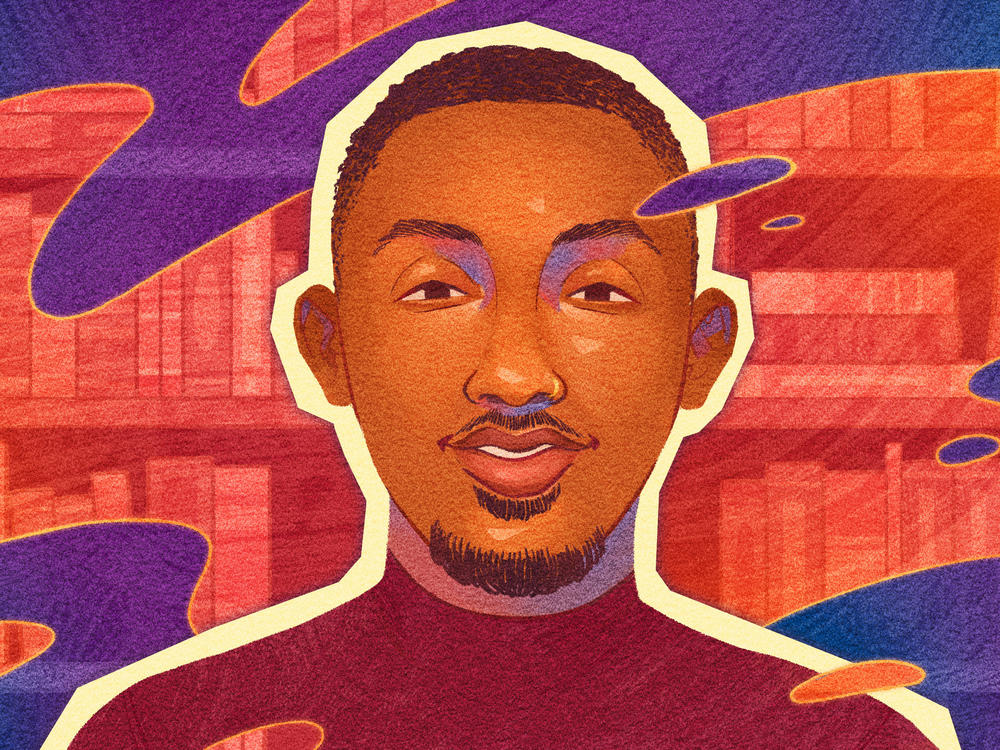Section Branding
Header Content
Author George M. Johnson: We must ensure access to those who need these stories most
Primary Content
This essay by George M. Johnson is part of a series of interviews with — and essays by — authors who are finding their books being challenged and banned in the U.S.
It's been nearly 15 months since the first attempt to challenge and ban my book All Boys Aren't Blue from high school libraries.
And yet, I continue to wake up daily with Google alerts of new attempts in new counties across the country, letting me know that this fight for culturally relevant teaching — the real CRT — is far from over. However, I as many other authors remain fervent in our fight to ensure that the young adults who need our literature the most aren't denied from being able to access it.
For me it has been a bittersweet journey. I've said this story a few times but I always knew that I was going to get banned. It was during a meeting back in 2018, after signing my deal, when I first brought up the thought. Angie Thomas' The Hate You Give and Nic Stone's Dear Martin were starting to face challenges in a few areas in the country. I kept thinking about all the topics I was going to discuss, some similar to theirs, and I knew my little book didn't stand a chance. But I also never thought it would get to becoming a national conversation.
Now, on one hand, the bans in many ways have had a reverse effect as many who never knew my book existed were able to find it. Many who didn't know that there was a story for them in this world now share my story and are empowered to live their lives in their full truth and power. However, it has also forced many young adults to see the ugliest side of this country. The racist, homophobic side that continues to dehumanize LGBTQ people, specifically Black LGBTQ people.
I often think about how Black storytelling — even more Black queer storytelling — has always been suppressed, erased, or white washed. Many of us now are only learning about the lexicon of Black writings that have existed in this country, even during slavery. And yet, we find ourselves in the same fight as many of our ancestors. Simply wanting our story to be told about us, for us, by us. Many of us became writers because of them, despite the limited access to them that many of us had in our schooling. So as Black authors we see this fight as something deeper than just simple storytelling.
Our stories will inspire the next generation of young writers. That's how it's always been in the Black community. When you look at our history you will know how connected the writers of our past were to the next generation of writers after them. They served as inspiration, mentors, editors and more to ensure that the storytelling kept going. I often feel this obligation to keep telling stories despite those who continue trying to erase mine.
I recently released the paperback edition of my second book, We Are Not Broken which focuses on the story of my grandmother Nanny, and her wisdoms, as she was a caregiver for me, my younger brother and our two older cousins. It's a book about Black boyhood. My forthcoming book Flamboyants will discuss those from Black queer community during the Harlem Renaissance.
I often get asked if the bans "changed how I would write" or "turned me off from continuing to write." They have not. They have only empowered me to keep telling more stories. More stories about myself, stories about my ancestors that have never been told or that were told improperly. And, even better, creating fictional worlds where Black queer kids who are like I was once can get their happy ending.
I will never stop writing our story.
George M. Johnson is an author and activist. George wrote All Boys Aren't Blue and We Are Not Broken and has a new book, Flamboyants, forthcoming. You can find George here.
Copyright 2023 NPR. To see more, visit https://www.npr.org.

